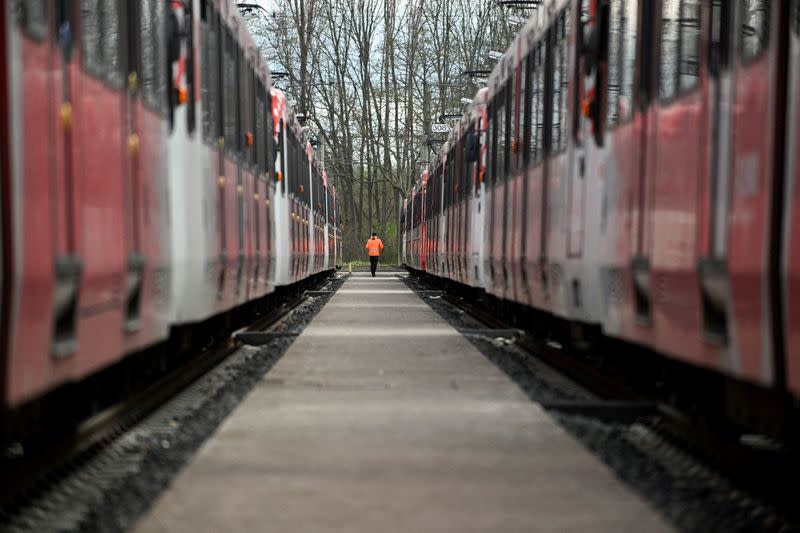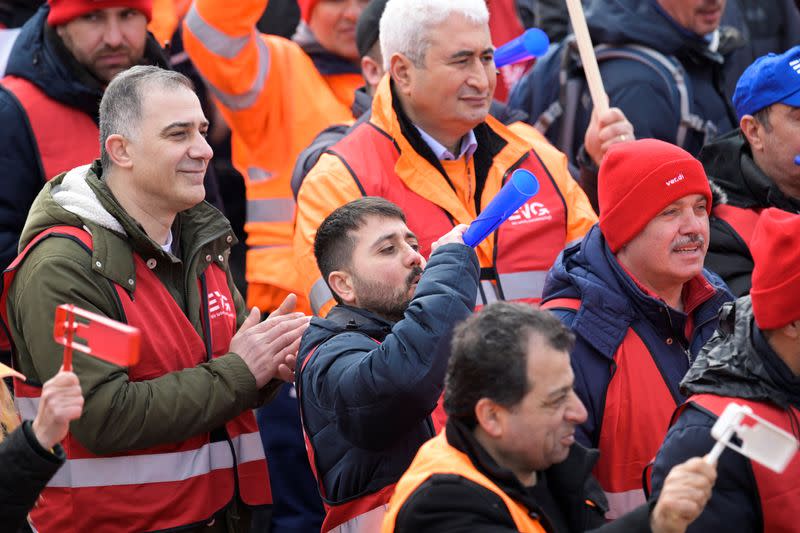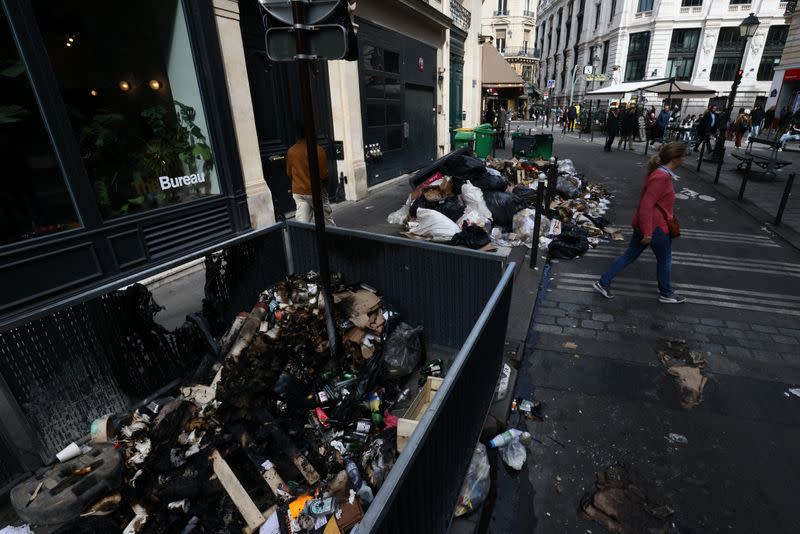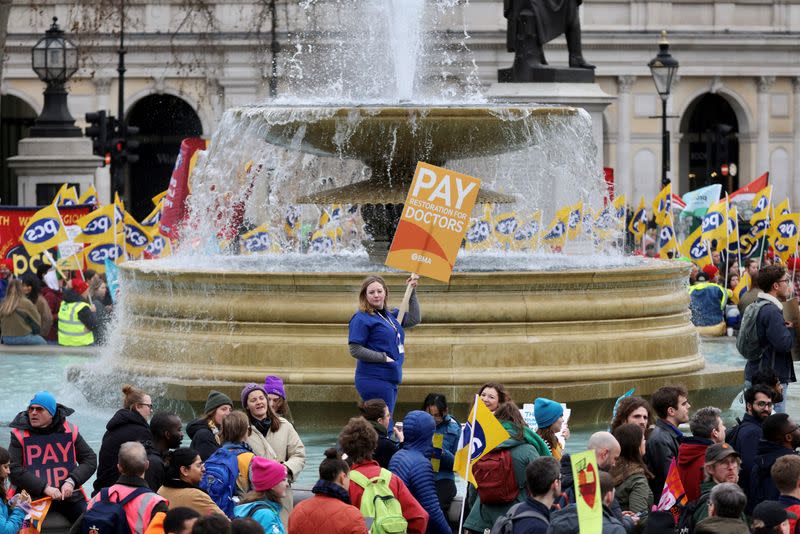Factbox-Strikes, protests in Europe over cost of living, pay and welfare
(Reuters) - European countries are experiencing a wave of strikes and protests due to high energy prices, a wider rise in living costs, and in France an increase in the retirement age. Here are details from across Europe:
GERMANY
* Airports and bus and train stations across Germany were at a standstill on Monday, causing disruption for millions at the start of the working week during one of the largest walkouts in decades as Europe's biggest economy reels from inflation.
* Employees are pressing for higher wages to blunt the effects of inflation, which reached 9.3% in February.
* Germany, which was heavily dependent on Russia for gas before the war in Ukraine, has been particularly hard hit by higher prices as it scrambled for new energy sources, with inflation rates exceeding the euro-area average in recent months.
FRANCE
* President Emmanuel Macron said he would press ahead with reforms in France, dodging a union leader's call to suspend a new pension law that raises the retirement age to 64 amid some of the country's worst street violence in years.
* Weeks of protests over the pension plans became more violent after Macron's government, which lacks a clear majority, pushed the legislation through parliament without a vote.
* Industrial action disrupting French refineries has left some petrol stations short of fuel, also hitting liquefied natural gas (LNG) terminals, power supply and nuclear reactor maintenance.
BRITAIN
* The British government is engaged in pay disputes across several sectors as workers demand higher wages to keep pace with surging inflation, with strikes in schools, on railways and in hospitals taking place on a regular basis.
* Security staff at London's Heathrow Airport have voted to strike for 10 days, trade union Unite said. The walkout will involve over 1,400 staff.
* More than 3,000 British civil servants across four government departments will strike from April 11 in a dispute over pay, pensions and job security, the Public and Commercial Services (PCS) union said.
(Compiled by Hugh Lawson)

 Yahoo News
Yahoo News 



